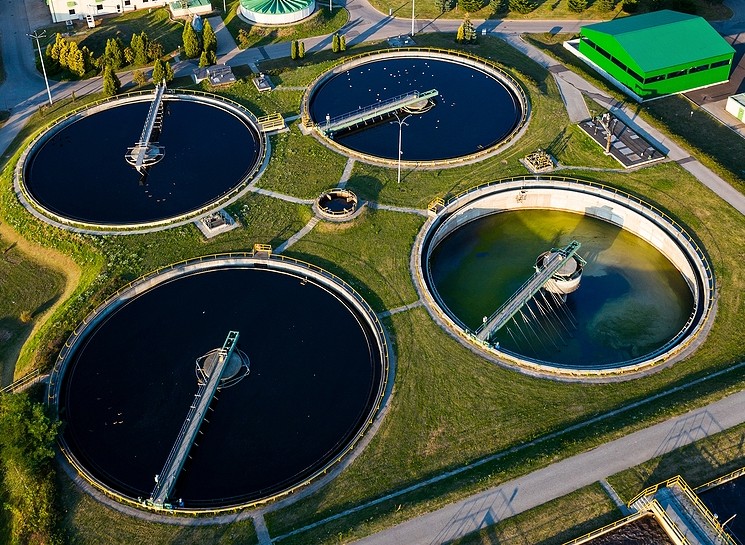News
81 Criminal Investigations Launched In Sewage Discharge Crackdown
Significant criminal action has been taken against water companies in England since Labour came into power, the government has confirmed, with a record 81 investigations launched to crack down on sewage discharges into waterways… which could see executives jailed for five years and companies fined hundreds of millions of pounds.
It’s hoped that this will serve to drive essential investments in water infrastructure upgrades to clean up rivers, lakes and streams around the country, with water companies set to spend £104 billion on schemes to reduce sewage discharges by almost half over five years.
It is a criminal offence for water companies to breach the rules of its environmental permit, such as through the release of excessive pollution into the natural environment, or failing to conduct water quality monitoring.
Every offence found by the Environmental Agency is followed up on, with the most serious incidents (such as illegal sewage spills) triggering criminal investigations, potentially leading to fines and criminal prosecutions.
The organisation is now carrying out the biggest criminal investigation ever into non-compliance by water companies at more than 2,000 sewage treatment works. If it’s found that water executives have been covering up or hiding illegal sewage spills, jail sentences of up to two years can be handed down.
Over the next few months, seven cases against water firms are being taken to court following Environment Agency criminal investigations.
Chief executive of the agency Philip Duffy said: “This milestone is testament to our determination to hold water companies to account and achieve a cleaner water environment.
“Our message to the industry is clear: we expect full compliance throughout the water system, and we will not hesitate to take robust enforcement action where we identify serious breaches.
“This is just the beginning – we are on track to deliver 10,000 inspections next year, using our tougher powers gained through the Water (Special Measures) Act alongside more officers and upgraded digital tools to drive better performance across the water sector.”
Greenwashing
Given that just 14 per cent of all rivers in England are classified as being in good ecological condition and given the level of public outcry over water pollution and sewage discharges, one would perhaps expect water companies to take the matter seriously and ensure that the necessary work is undertaken in order to prevent pollution incidents and restore good public opinion.
However, it seems that this is not the case and, despite the fact that water firms have issued many statements over the years testifying that they are working on improvements and apologising for poor performance, a recent report revealed that companies have been downplaying their environmental harm, shifting blame, delaying action and misrepresenting facts.
Carried out by the universities of Portsmouth and Manchester, alongside independent experts and Windrush Against Sewage Pollution, the study – published in the Nature Water Journal – revealed that language was softened around the use of raw sewage discharges, for example, redefining sewage treatment sites as water recycling centres.
Overflows were often described as containing heavily diluted rainwater (even if untreated sewage levels were such to pose a public health risk), and claims were made that discharge effects were temporary or minimal, in spite of a lack of scientific evidence supporting this.
Furthermore, customers were blamed for overflows (by, for example, flushing wet wipes) and infrastructure problems were downplayed. Associated costs were then exaggerated to manage expectations in relation to reform and investment.
Storm overflow data
The Environment Agency’s water supplier event duration monitoring return data for 2024 found that, although the average number of spills per overflow for the year was 31.8 – down from the 33.1 registered in 2023 – spill durations were up by 0.2 per cent.
Agency chair Alan Lovell observed that this data shows just how far we’ve still got to go in order to stop unnecessary sewage pollution.
Some £10.2 billion has been allocated to help improve storm overflows around England, with funds set aside to introduce nature-based solutions to reduce the amount of rainfall that reaches these overflows. Sustainable water management schemes include rain gardens, permeable pavements, tree planting, wetland creation and river meandering.
Get in touch
If, as a business, you’d like to find out more about water efficiency and how you can help safeguard resources for future generations, supporting both water quality and water quantity, get in touch with the H2o Building Services team today.
